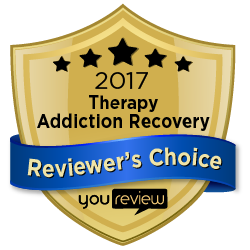Individuals with a substance abuse or mental health disorder are commonly viewed as uniquely different. However, substance abuse and mental health challenges tend to go hand in hand.
Substance use and abuse can drastically influence mental health and vice versa. Take a closer look at addiction and its relationship to mental health. Also, learn about co-occurring substance abuse and mental disorders statistics and how to track down the best possible treatment below.
A Closer Look at Substance Abuse
Substance abuse is the compulsive pattern of using substances, such as alcohol, opiates, or stimulants like methamphetamine. Using the substances is done to such an excessive degree that it leads to negative effects. For example, the person using the substance may not stop using it even if doing so causes problems with their health.
Substance abuse can also be referred to as addiction or substance abuse disorder (SUD). The excessive abuse of substances can be rooted in a psychological or physical dependence. Dependence means the person using the substance experiences uncomfortable withdrawal symptoms when they do not have access to the drug.
The Relationship Between Mental Health and Substance Use Disorder
Substance use disorder and mental health are deeply intertwined, although the connection doesn't always get enough credence. An individual who abuses substances can develop mental health issues.
For instance, addiction can disrupt parts of the brain that control impulsivity or mood stability. Therefore, someone who abuses substances may be more likely to experience depression or obsessive-compulsive disorder (OCD).
Likewise, an individual with a mental health disorder may be more likely to abuse substances. Oftentimes, people with mental illness turn to substances to self-medicate or deter symptoms. For example, someone with anxiety may use alcohol to feel less tense. However, ongoing use can contribute to dependence on alcohol.
Ideally, knowing whether the addiction or mental health disorder came first would be best when seeking rehab for mental health. However, the lines between which one exacerbates the other are often blurry and not easy to pinpoint.
Co-Occurring Substance Abuse and Mental Disorders Statistics
According to the Substance Abuse and Mental Health Services Administration (SAMHSA), 9.2 million adults have addiction and mental health disorders. Research indicates that one in four people with serious mental health conditions also have a substance abuse issue.
There are no specific combinations that quantify what can be deemed as a co-occurring disorder. However, certain mental health disorders are most likely to be revealed during a psychiatric rehabilitation assessment for SUD, including:
- Schizophrenia
- Anxiety disorders
- Bipolar disorder
- Conduct disorders
- Post-traumatic stress disorder (PTSD)
- Attention-deficit hyperactivity disorder (ADHD)
- Major depressive disorder
Further, individuals in mental rehabilitation centers for depression, anxiety, and other conditions commonly report using substances. These substances can include alcohol, opioids, marijuana, stimulants, hallucinogens, and illegally obtained prescription drugs.
The Challenges of Treating Co-Occurring Addiction and Mental Disorders
Treating co-occurring substance abuse and mental health disorders requires an individualized approach to care. Without a full understanding of all the conditions at play, targeting symptoms with the right therapy can be difficult. In the worst cases, treatment for one condition without knowledge of the other can even inadvertently put the suffering individual in danger.
For example, some medications prescribed for the treatment of substance use disorders could exacerbate undiagnosed anxiety. Or, recommending benzodiazepines for anxiety could cause problems for an individual who already struggles with an addiction to prescription medications.
For treatment to be effective, both conditions must be carefully evaluated and then treated concurrently. Further, the treatment path chosen must be capable and equipped to provide treatment for both conditions. For example, not all inpatient mental health treatment centers have professionals on staff who are familiar with SUD.
How to Find the Best Mental Health and Substance Abuse Treatment
If you or someone you know struggles with co-occurring mental health disorders and addiction, finding the right treatment is vital. First and foremost, look for residential mental health facilities for adults that offer "dual diagnosis treatment" for co-occurring disorders. This type of inpatient mental health facility for adults will offer thorough intake evaluation and treatment programs designed specifically for people struggling with both types of disorders.
It will be important to be open to the idea of longer-term treatment when addiction and psychiatric disorders exist. Additionally, inpatient rehabs tend to offer the ideal environment to support sobriety and recovery when compared to outpatient programs.
The presence of two or more conditions can mean rehabilitation is a more intense process that requires a longer program commitment. Long-term residential mental health facilities build tailored programs focused on:
- Achieving the most accurate diagnosis from the beginning
- Unveiling all symptoms associated with both or all conditions
- Providing a structured, recovery-supporting environment
- Creating a multifaceted therapy plan during treatment according to the unique needs of the individual
- Supporting the individual's medicinal needs
- Supplying clinical support trained to handle the unique needs of those with co-occurring disorders
Be sure to reach out and openly discuss your or your loved one's needs during treatment before committing to a certain program. All treatment centers can have desirable advantages, even beyond the types of treatment offered.
For instance, factors like location, accommodations, daily schedule, and amenities may also be important factors to consider. Remember, the end goal is to find treatment at a place most conducive to the success of the individual's recovery journey. Therefore, everything from therapeutic approaches to comfort is important.
Frequently asked Questions regarding Substance Abuse and Mental Health
Facts About Substance Abuse And Mental Health
-
Substance abuse and mental health often co-occur, with individuals experiencing both conditions simultaneously.
-
The relationship between substance abuse and mental health is complex and can exacerbate symptoms of each condition.
-
People with mental health disorders may turn to substances as a way to self-medicate and cope with their symptoms.
-
Substance abuse can worsen mental health conditions and make treatment less effective.
-
Common mental health disorders that co-occur with substance abuse include depression, anxiety, and PTSD.
-
Dual diagnosis treatment programs are designed to address both substance abuse and mental health issues simultaneously.
-
Integrated treatment approaches, combining therapy and medication, are often effective in managing co-occurring disorders.
-
It is essential for individuals with co-occurring disorders to receive comprehensive care from professionals trained in dual diagnosis treatment.
-
Family support and therapy play a crucial role in the recovery process for individuals with co-occurring disorders.
-
Seeking help from qualified professionals is the first step towards managing and overcoming substance abuse and mental health challenges.
Find the Most Effective Path to Recovery with Mental Health Rehab at Pathways
At Pathways Real Life Recovery treatment centers in Utah, we believe everyone has the power to change. The key is giving individuals struggling with addiction and mental health the tools they need to succeed.
We believe in driving down to the root cause of addiction and mental health disorders to build the most effective roadmap to recovery. We offer outcome-based programs of many types, including day treatment, inpatient and outpatient rehab, and sober living.
If you are ready to take the first steps to a fresh start, let us help you embrace change.



